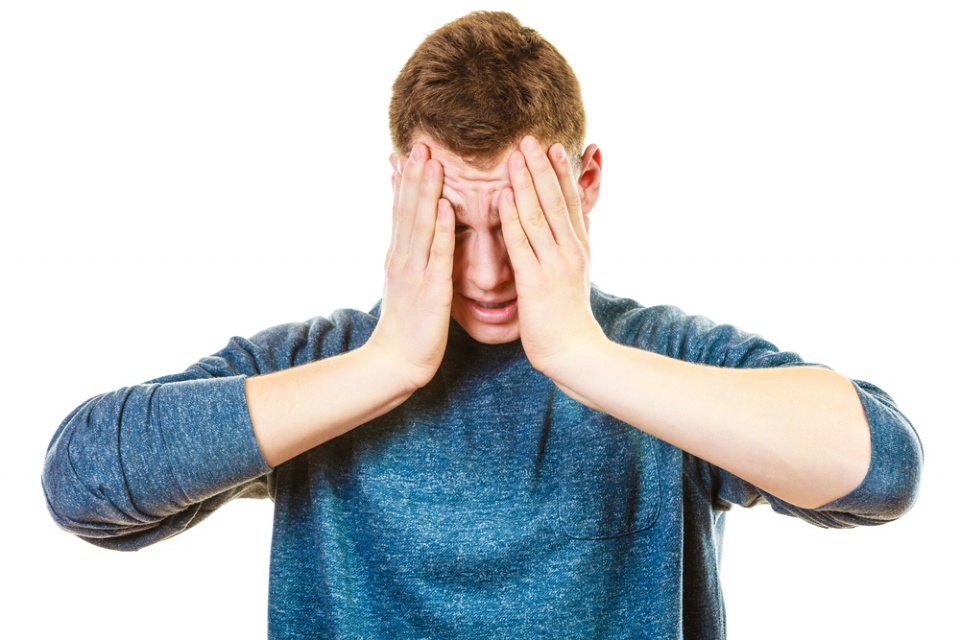A college or
university semester usually means exams, research papers, exams, oral
presentations, and you got it, more exams. If you’re not used to this brutal
cycle known as post-secondary education, you may not know how to deal with the
pressure.
According to a
recent CTV News report, a study from College de Bois-de-Boulogne
revealed that 35 per cent of CEGEP students suffer from anxiety all the time
and 17 per cent suffer from some form of psychological stress. The study was
based on interviews from 12,000 students across eight CEGEPs.
Caroline Chochol is
a psychology teacher at Dawson College. Over the last five years she has seen
an increase in students approaching her for help in dealing with anxiety, from
one student a semester to five students a semester.
“Mostly, they ask
about anxiety that seems to be creeping in from school into the other aspects
of their lives,” Chochol says. “There’s actually a lot of social anxiety. If
they have presentations, then they actually request to do the presentation with
me in my office, instead of in front of the classroom.”
Kelly Ann Morel, a
Guidance Counsellor at Dawson, says that since she joined the CEGEP in 2009,
she has only seen a slight increase in students approaching her for counselling
regarding anxiety. Morel adds that the jump between high school and CEGEP has a
lot to do with an anxiety increase in students.
“[The students are]
coming out of high school, where a lot of decisions are made for them,” Morel
says. “[Now], they’re coming into an educational system where they're much more
responsible for the things that they have to do. They're more in charge of
their studies, they often have to start working, at least part-time, if not more,
to be able to afford some of the things they need for either their education or
their personal life or because it’s expected of them because they’re older.”
Chochol adds that
students might not know how to manage being more independent, and not being
constantly reminded of all the tasks they have to do. “There have been reforms
in the high school education system,” Chochol says. “So, things are being
taught a different way. And perhaps the method of teaching students to succeed
in high school is not related to how they have to succeed in CEGEP in terms of
being independent, and also self-motivated.”
Amanda Jade, who
recently graduated from Psychology at Concordia University, has been dealing
with anxiety since elementary school, though her anxiety was not necessarily
school-related at first. “I was always
worried about something bad happening to me or the people I cared about,” Jade
says. “I would get a lot of stomach aches from the anxiety and every time I did
I thought I was going to be seriously sick. Any time family members would go on
a plane I would be extra anxious waiting for them to let me know they arrived
safe.”
Jade eventually went to see a psychologist, and says that has helped her
learn how to deal with her anxiety. She says the stress of university didn’t
always help. “My anxiety didn't actually affect my personal or school life too
much, thankfully,” she says. “During university I ended up going through
depression that sometimes brought out the anxiety because of feeling
overwhelmed [with school] which made it a lot tougher to get out of bed to go
to school, to pay attention in class and to study for exams, so my grades
suffered.”
Over the years,
there has been a steady increase in postsecondary school enrolment in Canada.
According to Statistics Canada, university and college enrolment rose
from 573,000 full-time students in 1997/1998 to just under 800,000 full-time
students in 2007/2008. In Quebec, the number rose from 131,000 to just over
170,000 in the same time span. More recently, Canadian post-secondary
institutions saw a 1.9 per cent increase in enrolment from 2010/2011 to
2011/2012 alone. Morel says the increase in competition is a big factor in
students putting more pressure on themselves.
“Somehow, our
society has sent the message that individuals have to decide very quickly what
they want to do with their life,” Morel says. “They have to make choices in
CEGEP that somehow they feel will determine what they do with the rest of their
lives. There’s very little room for failure for them or to explore. For
whatever reason, [society is] telling them that they have to know immediately
and that’s a huge pressure.”
Morel says that some
of the symptoms of anxiety include not being able to fall or stay asleep,
worrying a lot, which can result in concentration issues, increased heart rate,
shallow breathing, not being hungry, and being unable to relate to other people
because you’re so consumed with what you’re worried about. Morel says one thing
she tries to do for the students who seek help is try to better their sleeping
habits to ensure that they have a steady sleep pattern.
“So, that means not
using backlit machines before bed, having a regular routine, going to bed at
the same time every night, maybe reading before bed or having a bath,” Morel
says. “Anything that’s going to relax the body and prepare it for sleep.” The
students are also encouraged to exercise regularly. “Anxiety is an energy so [exercise] helps
burn off some of the anxiety […] it also allows them to be more tired, so they
can fall asleep better,” Morel says.
Morel explains that
cognitive behavioral therapy (CBT) works really well with anxious individuals.
According to the Mayo Clinic’s website, “CBT helps you become aware of
inaccurate or negative thinking so you can view challenging situations more
clearly and respond to them in a more effective way.”
For Jade, talking to
someone helped. So, her advice to anyone suffering from anxiety is to do the
same. “There are plenty of counsellors offered through school that are
inexpensive or even free,” Jade says. “You definitely need to talk to someone
though, even if it's through online websites because it really helps so much.”
At the end of the
day, seeking help seems to always be the best way to overcome any obstacles,
especially if school is weighing you down.

 In The Latest Issue:Latest Issue:
In The Latest Issue:Latest Issue:
- A Bittersweet Farewell
- The new Laval Aquatic Co...
- The End of an Era:
Articles
Calendar
Virtual- ANNUAL TEACHER APPRECIATION CONTEST
- APPUI LAVAL
- ARTS & CULTURE
- CAMPS
- CAR GUIDE
- CCIL
- CENTENNIAL ACADEMY
- CHARITY FUNDRAISING
- CITYTV
- COSMODÔME
- COMMUNITY CONNECTIONS
- COVER STORY
- DINA DIMITRATOS
- ÉCOLE SUPÉRIEURE DE BALLET DU QUÉBEC
- EDITORIALS
- ÉDUCALOI
- EDUCATION
- EMPLOYMENT & ENTREPRENEURSHIP
- FÊTE DE LA FAMILLE
- FÊTE DU QUARTIER SAINT-BRUNO
- FAMILIES
- FESTIVAL LAVAL LAUGHS
- FÊTE DE QUARTIER VAL-DES-BRISES
- FINANCES
- GLI CUMBARE
- GROUPE RENO-EXPERT
- HEALTH & WELL-BEING
- 30 MINUTE HIT
- ANXIETY
- CHILDREN`S HEALTH & WELLNESS
- CLOSE AID
- DENTAL WELLNESS
- EXTREME EVOLUTION SPORTS CENTRE
- FONDATION CITÉ DE LA SANTÉ
- GENERAL
- HEARING HEALTH
- MESSAGES FROM THE HEALTH AGENCY OF CANADA
- MENTAL HEALTH
- SEXUALITY
- SOCIAL INTEGRATION
- SPECIAL NEEDS
- TEENS
- THE NUTRITION CORNER
- THE NUTRITION CORNER - RECIPES
- VACATION DESTINATION
- WOMEN'S FITNESS
- WOMEN'S HEALTH
- HILTON MONTREAL/LAVAL
- HOME & GARDEN
- INTERNATIONAL WOMEN'S DAY
- JAGUAR LAVAL
- LAVAL À VÉLO
- LAVAL FAMILIES TV SHOW
- LAVAL FAMILIES MAGAZINE CARES
- LAVAL URBAN IN NATURE
- LE PARCOURS DES HÉROS
- LES PETITS GOURMETS DANS MA COUR
- LEON'S FURNITURE
- LEONARDO DA VINCI CENTRE
- LFM PREMIERES
- LIFE BALANCE
- M.P. PROFILE
- MISS EDGAR'S AND MISS CRAMP'S SCHOOL
- MISSING CHILDREN'S NETWORK
- NETFOLIE
- NORTH STAR ACADEMY LAVAL
- OUTFRONT MEDIA
- PASSION SOCCER
- PARC DE LA RIVIÈRE-DES-MILLE-ÎLES
- PÂTISSERIE ST-MARTIN
- PIZZERIA LÌOLÀ
- PLACE BELL
- PORTRAITS OF YOUR MNA'S
- ROCKET DE LAVAL
- SACRED HEART SCHOOL
- SCOTIA BANK
- SHERATON LAVAL HOTEL
- SOCIÉTÉ ALZHEIMER LAVAL
- STATION 55
- STL
- SUBARU DE LAVAL
- TECHNOLOGY
- TEDXLAVAL
- TODAY`S LAURENTIANS AND LANAUDIÈRE
- TODAY`S LAVAL
- WARNER MUSIC
- THIS ISSUE
- MOST RECENT
Magazine
Anxiety Among Young Adults on the Rise?
Articles ~e 105,7 Rythme FM 4 chemins Annual Teacher Appreciation Contest Appui Laval Arts & Culture Ballet Eddy Toussaint Camps THIS ISSUE MORE...
CONTESTS Enter our contests
CONTESTS Enter our contests
CALENDAR
Events & Activities
COMMUNITY Posts Events
PUBLICATIONS Our Magazine Family Resource Directory
LFM BUSINESS NETWORK Learn more
COUPONS Click to save!
COMMUNITY Posts Events
PUBLICATIONS Our Magazine Family Resource Directory
LFM BUSINESS NETWORK Learn more
COUPONS Click to save!
SUBSCRIPTIONS
Subscribe to the magazine
Un-Subscribe
E-NEWSLETTER Subscribe to our E-newsletter Un-Subscribe
WRITE FOR US Guidelines & Submissions
POLLS Vote today!
E-NEWSLETTER Subscribe to our E-newsletter Un-Subscribe
WRITE FOR US Guidelines & Submissions
POLLS Vote today!
ADVERTISERS
How to & Media guide
Pay your LFM invoice
SUGGESTIONS Reader's Survey Suggest a Listing
LFM About Us Our Mission Giving Back Contact Us
SUGGESTIONS Reader's Survey Suggest a Listing
LFM About Us Our Mission Giving Back Contact Us
 PICK-UP LOCATIONS
Get a copy of LFM!
PICK-UP LOCATIONS
Get a copy of LFM!
TERMS & CONDITIONS Privacy | Terms
ISSN (ONLINE) 2291-1677
ISSN (PRINT) 2291-1677
Website by ZENxDESIGN



 BY:
BY: 
Tweet
Share